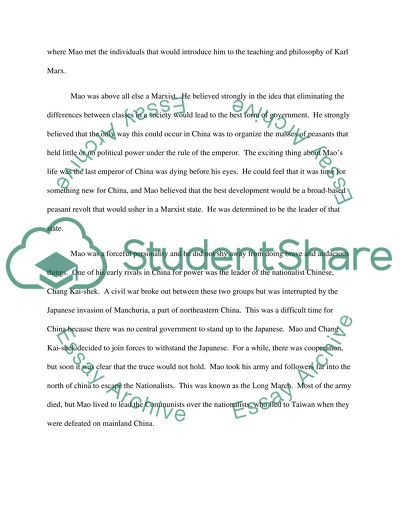Mao Zedong Essay Example | Topics and Well Written Essays - 750 words. Retrieved from https://studentshare.org/history/1481367-mao-zedong
Mao Zedong Essay Example | Topics and Well Written Essays - 750 Words. https://studentshare.org/history/1481367-mao-zedong.


